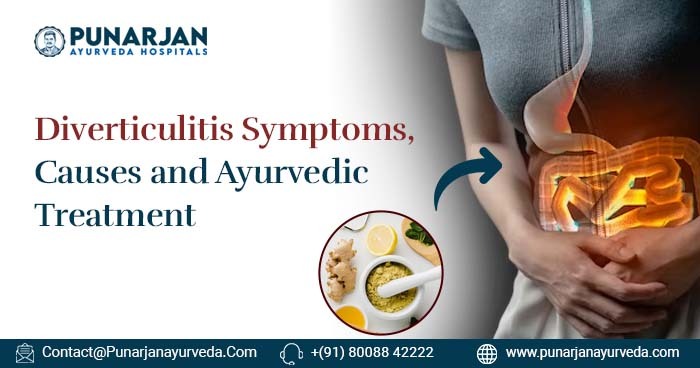Everything You Need to Know About Diverticulitis
Meet Diverticulitis: an unpleasant visitor, notorious for causing discomfort and frustration. It’s like that unwelcome house guest who overstays their welcome, only, it’s hanging out in your digestive tract. Less than ideal, isn’t it? But don’t panic! Understanding Diverticulitis can help you recognize its signals and nip it in the bud. So, let’s delve into Diverticulitis, from what it is to how you can prevent it.
What is Diverticulitis?

Let’s imagine your colon is a calm, serene stream. Now, picture a tiny pouch or bulge growing on the side of the stream—kind of like an outgrowth. That’s a diverticulum. When these diverticula become inflamed or infected, we get what’s known as Diverticulitis, a digestive disease that often lays claim to the large intestine.
Many people have diverticula but they rarely cause any problems, hence you may never know about them. However, when one or a couple of these bulges get inflamed – wow, do they make their presence known!
Diverticulitis Symptoms
We can’t play a game of hide-and-seek with this one! Diverticulitis isn’t shy about expressing itself. Check out if you’re experiencing rare bouts of:
Severe abdominal pain (usually on the left side), which may be continuous or can come and go
Fever and chills
Bloating and gas
Diarrhea or constipation
Nausea and sometimes, vomiting
Loss of appetite
Remember, everyone is different. Your body may show these symptoms or it may just decide to exhibit a few. Anyways, if you sense something’s off, trust your gut (literally!) and seek medical help.
Diverticulitis Causes
Alright, so we’ve met Diverticulitis. But how did it get here in the first place? Mmm…the jury’s still out on that one. The exact cause isn’t known, but it may have something to do with the way we live or the food we eat.
Higher chances of getting this condition are observed in people who consume a low-fiber diet. Fiber, you see, helps in maintaining a healthy bowel movement. A shortage of it can lead to constipation, forcing you to push hard during bowel movements, which may lead to diverticula.
Some researchers also suggest that genetics might play a role. So if your family’s got a history, it won’t hurt to be a little extra vigilant.
Diverticulitis Risk Factors
Think of these as the red flags that might somewhat increase your chances of an encounter with Diverticulitis:
Age: Those over the age of 40, your risk slowly starts to increase.
Low-fiber, high-fat diet: As explained before.
Sedentary lifestyle: Lack of exercise could lead to constipation and could consequently cause Diverticulitis.
Obesity: The higher the body mass index (BMI), the greater the risk.
Smoking: For some reason, smokers seem to have a leg up in the Diverticulitis occurrence race.
Diverticulitis Prevention
Now for the good news! Though we can’t sidestep Diverticulitis with 100% certainty, there are definitely a few steps to lighten its knock on the door:
Increase your fiber intake: Treat your diet to plentiful fruits, vegetables, and whole grains.
Say yes to water: More water means smoother bowel movement.
Regular exercise: A bit of a regular wiggle and waggle could go a long way in keeping constipation at bay.
Say bye to smoking: At least, Diverticulitis is yet another reason to quit, if you were looking for one!
So there you have it! A little knowledge about Diverticulitis to befriend your colon health. Remember, this isn’t meant to get you worried, but rather, prepared and aware. It’s your body, your health, and the more you know, the more proactive you can be.
Diverticulitis Ayurvedic Treatment
In Ayurveda, diverticulitis would be approached based on the individual’s constitution (prakriti) and the underlying imbalances (doshas) contributing to the condition. Here are some general principles and Ayurvedic treatments that may be considered:
- Balancing Agni (Digestive Fire): Ayurveda places great emphasis on maintaining healthy digestion (agni) as it is considered central to overall well-being. Digestive imbalances, such as weak agni, can contribute to conditions like diverticulitis. Therefore, treatment may involve herbs and practices that support and strengthen digestion, such as ginger, cumin, fennel, and trikatu (a combination of ginger, black pepper, and long pepper).
- Pacifying Pitta Dosha: In Ayurveda, imbalances in the pitta dosha, characterized by heat, inflammation, and acidity, can contribute to inflammatory conditions like diverticulitis. Therefore, treatment may focus on cooling and soothing the digestive system. Herbs like licorice, aloe vera, and coriander may help pacify pitta and reduce inflammation.
- Supporting Vata Dosha: Vata imbalance can also play a role in digestive disorders, including diverticulitis. Ayurvedic treatments may include warm, grounding foods and herbs to balance vata, such as cooked grains, root vegetables, ghee, and gentle abdominal massage with warm sesame oil or castor oil.
- Dietary Recommendations: A key aspect of Ayurvedic treatment for diverticulitis involves dietary modifications tailored to the individual’s constitution and digestive capacity. This may include a predominantly warm, cooked diet with an emphasis on easily digestible foods such as well-cooked vegetables, soups, grains (like rice and quinoa), and herbal teas. Avoiding foods that are difficult to digest, such as raw vegetables, seeds, nuts, spicy foods, and heavy meats, may also be recommended.
- Stress Management: Stress can exacerbate digestive issues, including diverticulitis. Ayurveda emphasizes the importance of stress management through practices like yoga, meditation, pranayama (breathing exercises), and adequate rest and relaxation.
- Herbal Formulations: Ayurvedic practitioners may prescribe specific herbal formulations or remedies tailored to the individual’s constitution and imbalances. These formulations may include combinations of herbs known for their digestive and anti-inflammatory properties, such as triphala, kutaj, musta, and bilva.
It’s important to note that Ayurvedic treatment for diverticulitis should be personalized to the individual and may vary based on factors such as the severity of symptoms, overall health status, and any underlying imbalances. Additionally, Ayurvedic treatment should complement conventional medical care, and individuals with diverticulitis should work closely with both Ayurvedic practitioners and healthcare providers to develop a comprehensive treatment plan.



